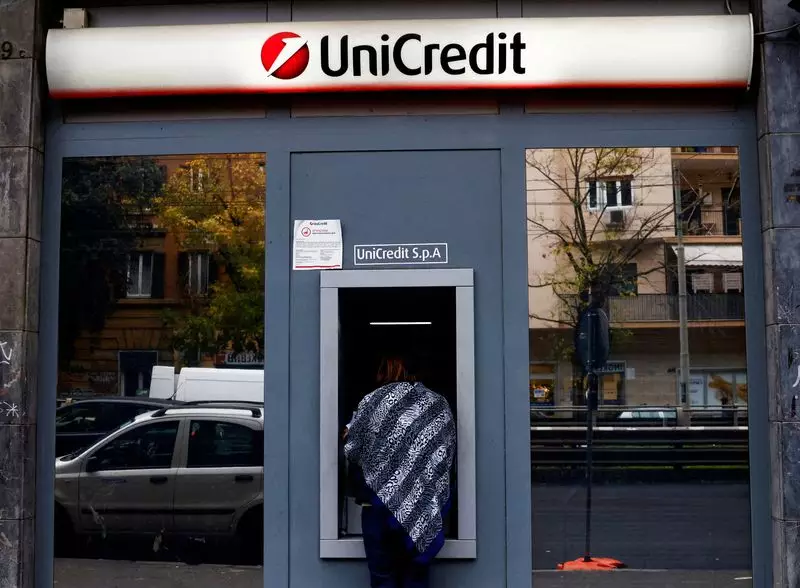The recent developments surrounding UniCredit’s stake in Commerzbank have set the stage for a contentious chapter in European banking. As Germany rebuffs UniCredit’s attempts to increase its investment in Commerzbank, the larger implications for the banking sector in Europe and for cross-border takeovers manifest. This article delves into the intricacies of this high-stakes scenario, highlighting the factors contributing to the resistance and the cultural clash between the Italian and German banking systems.
Background of the Situation
UniCredit, an Italian banking giant, has been making substantial strides in increasing its ownership in Commerzbank, Germany’s second-largest listed lender. As of recent reports, UniCredit has escalated its stake to approximately 28% through the use of derivatives. This has not been well received by the German government, which criticized the action as “uncoordinated and unfriendly.” The resistance stems from a broader strategy from Berlin to protect national financial interests, particularly as federal elections loom on the horizon.
Critically, the move follows a previous statement from UniCredit’s CEO, Andrea Orcel, who had pledged to act with restraint until a new German government was established. The rapid accumulation of shares prior to the elections caught the German government off guard and raised red flags regarding potential takeover ambitions. The very mechanisms employed by UniCredit, including derivatives, have drawn scrutiny and reflect a tactical approach that contrasts sharply with more traditional methods.
UniCredit’s ambition to secure a larger stake in Commerzbank operates within a tangled web of political and legal considerations. The German government, wary of foreign ownership, especially post-election, is utilizing its governmental channels to navigate these challenges. An official spokesperson firmly indicated that Germany is working diligently to devise a solution for the banking sector that would circumvent UniCredit’s encroachment.
The legal avenues available to the German government appear fraught with complications. While there is a desire among lawmakers to thwart UniCredit’s aspirations, sources suggest that the potential for effective legal maneuvers is limited. Germany’s trepidation reflects a broader sentiment within Europe regarding foreign investment, as countries assess the national security ramifications of such takeovers in essential industries.
Cultural Clash in Banking Approaches
The situation exemplifies a cultural clash between Italian and German banking philosophies. On one hand, UniCredit seeks to assert a more aggressive, opportunistic approach, focusing on maximizing shareholder value and securing significant influence within Commerzbank’s managerial frameworks. On the other hand, the German banking culture tends to emphasize stability, long-term planning, and a cautious approach to cross-border acquisitions.
Marco Troiano, a financial institutions expert, articulated that as UniCredit expands its holdings, Commerzbank is likely to find itself restricted in its strategic options. The underlying tension is not merely about numbers; it reflects divergent views on corporate governance and operational autonomy. For Hamburg-based Commerzbank, protecting its independence and the ability to drive its unique strategy remains a priority, as highlighted by its commitment to presenting its strategic roadmap to investors.
As the dual path of potential acquisition and shareholder value accentuates the stakes involved, the situation remains fluid. UniCredit’s larger plan may still hinge on securing European Central Bank (ECB) approval to solidify its stake, while simultaneously managing its aspirations for a takeover bid. This precarious balancing act may dictate UniCredit’s future dealings, particularly with regards to its concurrent bid for Banco BPM.
For Commerzbank, with its scheduled strategy presentation to investors approaching, the pressure mounts. Investors and analysts alike will scrutinize both firms’ responses, as the outcomes could reshape the competitive landscape of European banking for years to come. Institutions involved in such high-profile transactions must tread cautiously, for the interplay of ambition and patriotism often has profound implications.
The unfolding saga between UniCredit and Commerzbank not only captures the complexities of modern banking takeovers but also touches on the deeper issues of national identity and security in an increasingly interconnected global marketplace. As both parties navigate this fraught landscape, the consequences of their decisions will resound far beyond the balance sheets.

